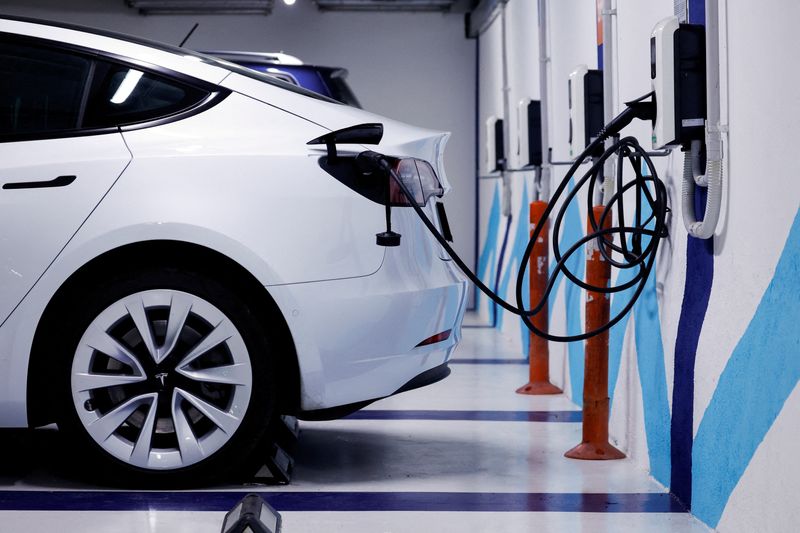Is Europe in Danger of Losing EV Battery Race?
According to a report by the European Court of Auditors (ECA), Europe is at risk of losing the global battery race due to various challenges.
These include limited access to raw materials, increasing costs, and tough competition. The report highlighted that the European Union’s efforts to achieve its climate goals, which heavily rely on the adoption of electric vehicles powered by batteries containing metals like cobalt, nickel, and lithium, may be hindered.

The ECA, an independent external auditor of the EU, stated that nearly 20% of new cars registered in the EU in 2021 were electric.
Also Read: Microsoft notches record high valuation of nearly $2.6 trillion
With an estimated 30 million zero-emission vehicles expected on European roads by 2030 and a ban on new petrol and diesel cars by 2035, the demand for batteries will soar. However, the EU’s strategy has not adequately addressed its ability to meet this growing battery demand.
Annemie Turtelboom, who led the ECA audit, expressed concerns about the EU’s ambition to become a global battery powerhouse, emphasizing that the odds of success are not favorable.
Turtelboom warned that if the EU fails to produce enough batteries domestically, it may either miss its emissions goals for 2035 or rely heavily on imported batteries, which could harm European industry and come at high costs from other countries.
The EU’s reliance on a few countries for raw materials poses a significant risk. The ECA highlighted that, on average, the EU imports 78% of five key materials. This concentration of supply brings geopolitical risks and potential shortages.
Turtelboom emphasized that the EU should avoid becoming as dependent on batteries as it is on natural gas from Russia.
The report revealed that a significant portion of the world’s cobalt comes from the Democratic Republic of Congo, while China dominates global battery production capacity and supplies 40% of natural graphite.
The EU relies entirely on imports of refined lithium. Although extraction in Europe is possible, it will take considerable time, with Portugal, holding the bloc’s largest lithium reserves, not expecting production to begin until 2026.
Furthermore, the ECA identified that the EU lags behind in terms of cost competitiveness, partly due to high energy prices. The EU Commission’s data was found to be outdated and incomplete, and public funding for battery projects remains uncoordinated, leading to overlaps and inefficiencies.
Also Read: Netflix Tudum 2023: Everything Announced
In summary, the report from the European Court of Auditors raises concerns about Europe ability to become a global battery powerhouse. Limited access to raw materials, rising costs, intense competition, and an inadequate strategy pose challenges to the EU’s ambitions.
The report warns that failure to address these issues could result in missed climate goals or heavy reliance on imported batteries, which would harm European industry and come at a high price.

I am a law graduate from NLU Lucknow. I have a flair for creative writing and hence in my free time work as a freelance content writer.
